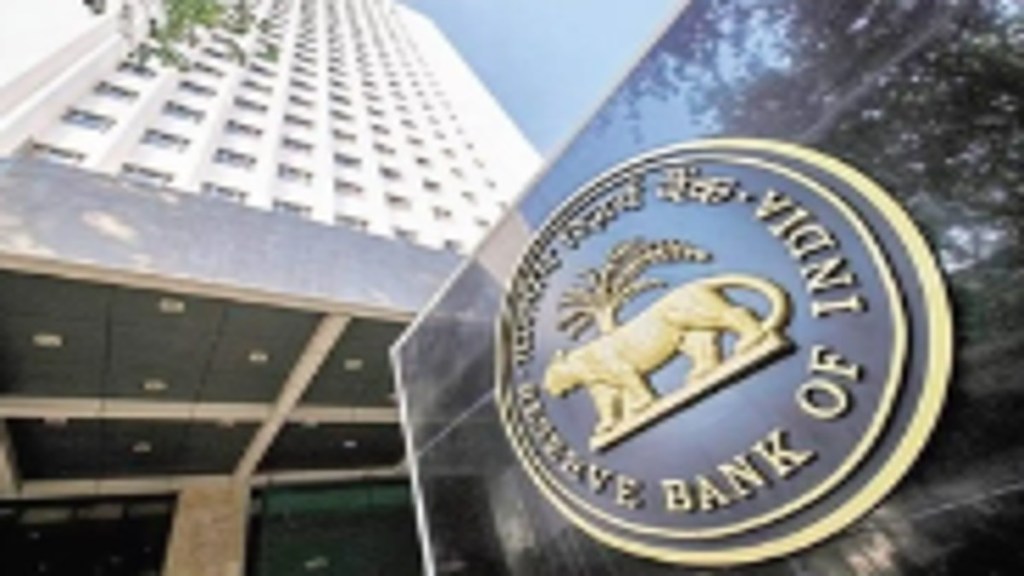The Reserve Bank of India (RBI) is widely expected to change its policy stance from “withdrawal of accommodation” to “neutral” at its monetary policy committee (MPC) meeting on October 9, driven by easing inflation and slowing growth.
With economic activity showing signs of weakness, experts say that persisting with a hawkish stance could further impede growth recovery. While a change in stance seems imminent, the apex bank is expected to keep the repo rate unchanged at 6.5%, marking the tenth consecutive meeting with no change in interest rates.
“Three developments stand out: softer growth numbers have trickled in recently, inflation has been falling, and the external environment has moved from rate hikes to rate cuts,” Pranjul Bhandari, chief economist, India and Indonesia, HSBC Global Research, said in a research note. “We think it will change its stance from a hawkish ‘withdrawal of accommodation’ to ‘neutral’ in the upcoming October 9 policy meeting”.
She expects repo rate cuts of 25 basis points each in the December and February meetings.
The RBI has maintained a withdrawal of accommodation stance since June 2022, to ensure that inflation remains within target. Between May 2022 and February 2023, the policy repo rate was increased by 250 basis points to 6.5%.
Inflationary pressures have begun to moderate, with the headline inflation now the closest it has been to the RBI’s 4% inflation target in nearly 22 quarters.
“It is possible that the RBI may also signal greater data dependence going ahead, as real rates remain elevated and the headline inflation is the closest to the inflation target it has been in almost 22 quarters (on a 4-quarter rolling basis),” said Rahul Bajoria, head of India and ASEAN Economic Research at BofA Securities India. “This opens up the possibility of a shift in stance to neutral as well, if the RBI wants to entertain the idea of a rate cut,” he said.
Consumer price index (CPI) inflation in August 2024 stood at 3.65%, which is the second-lowest retail inflation in the past five years, compared with 6.83% a year ago. The figure is within the RBI tolerance band of 2-6% and lower than its target of 4%.
Core inflation, which excludes volatile food and fuel prices, has been on a consistent downtrend, providing further evidence of easing inflationary pressures.
The weakening trend in economic growth is likely to be on the minds of MPC members as they consider a rate cut and a change in the monetary policy stance. Economic growth slowed to a five-quarter low of 6.7% in the first quarter of this fiscal year from 7.8% in the previous March quarter. Other indicators such as vehicle sales, cement volumes, fuel consumption, GST collections, and rural wages have witnessed sluggishness.
“It is important to note that while headline CPI is still above target, the core CPI has been consistently slowing for nearly 16 months and is now in a 3.1–3.3% range, which is a series-low,” said Kapil Gupta, executive director, Nuvama Institutional Equities. “At one level, this point towards muted pricing power in the economy, which is also seen in muted volume growth of consumption-oriented companies,” he said.
With demand slowing amid weak exports, and core inflation remaining low, a tight monetary stance may not be warranted, particularly when the US Federal Reserve has also commenced easing, added Gupta, who expects the RBI to shift its stance to neutral.
The RBI’s inflation projection for the current fiscal is 4.5%, with 4.4% for Q2, 4.7% for Q3, and 4.3% for Q4.
Global trends also support the case for a change in RBI’s stance. The US Federal Reserve recently initiated its own rate-cutting cycle, implementing a 50 basis points cut in September. This move, along with signals of easing monetary policy in other major economies, further strengthens expectations that the RBI will pivot towards a more neutral stance.
This week’s meeting will also be the first policy meeting with three new faces in the Monetary Policy Committee. Last week, the government appointed three external members in the MPC — Ram Singh, director, Delhi School of Economics, University of Delhi; Saugata Bhattacharya, economist; and Nagesh Kumar, director and chief executive, Institute for Studies in Industrial Development. The new MPC members were appointed for a four-year term to replace outgoing external members Ashima Goyal, Jayanth Varma and Shashanka Bhide. Goyal and Varma voted for rate cuts in the previous two MPC meetings.
